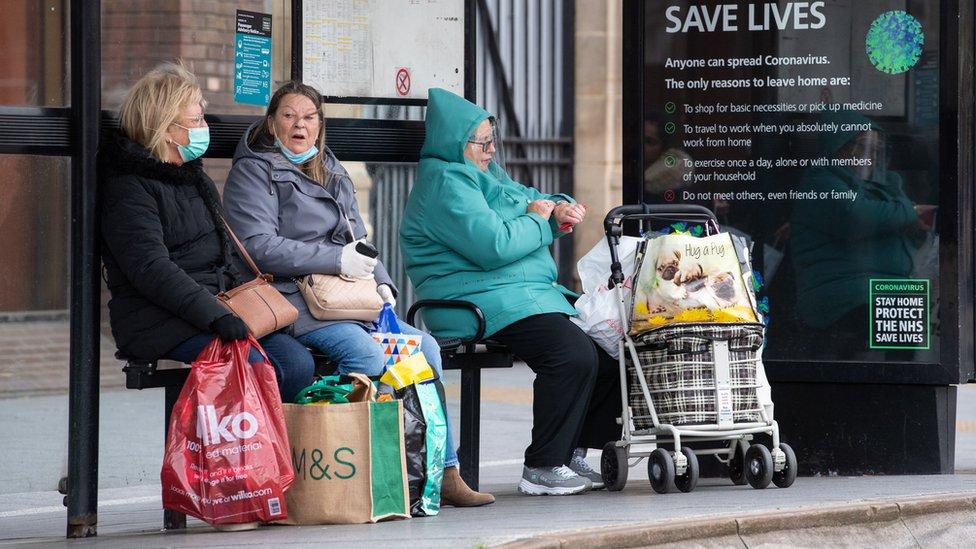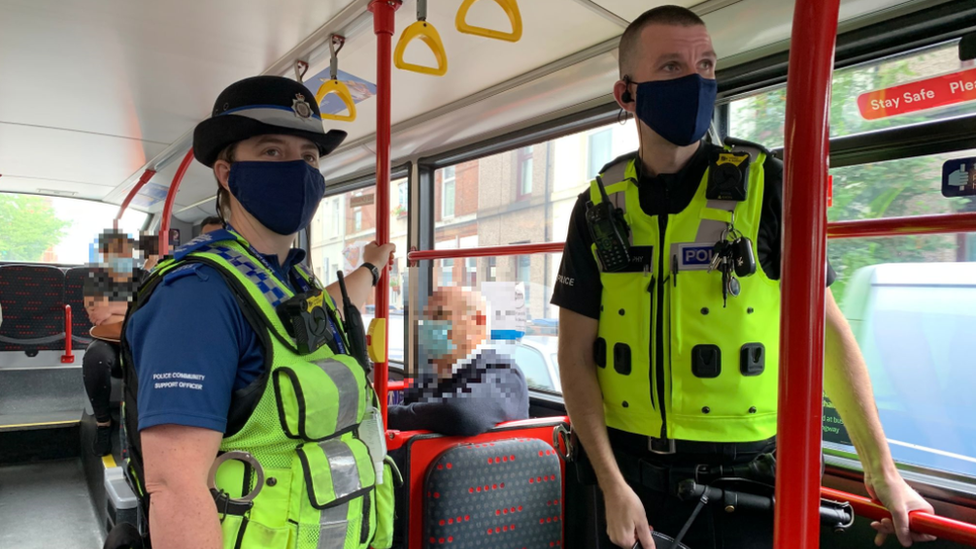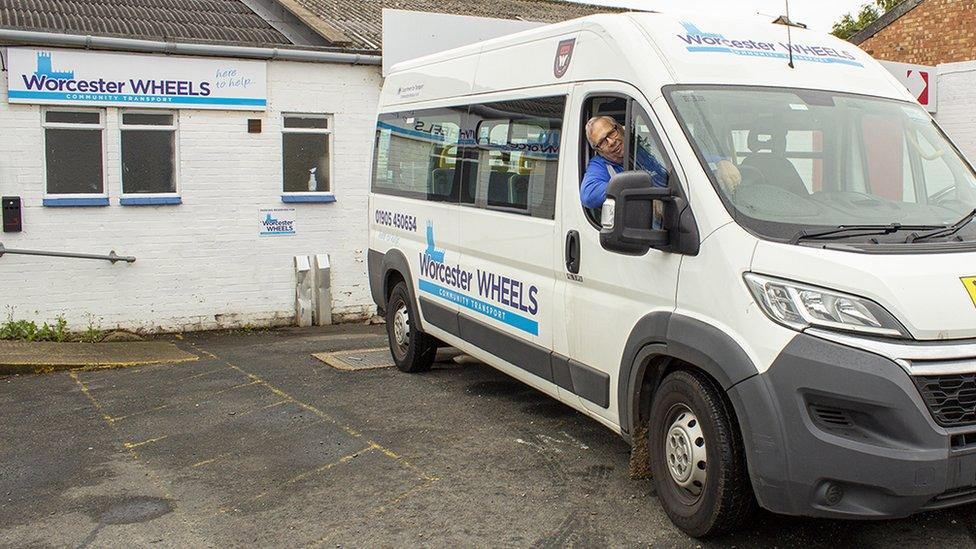Leicestershire England's worst for late buses, figures show
- Published

Leicestershire's proportion of late buses is much higher than the national average
Leicestershire is the worst area in England for bus punctuality, according to new figures.
Department for Transport (DfT) data showed 37% of non-frequent services were at least six minutes late in the year to the end of March 2019.
Dorset had the second worst figure (31%) followed by Bristol (28%).
Warwickshire had the best punctuality rate with 3% of services running late, followed by Blackpool (4%) and North East Lincolnshire (4.7%).
The figures - arranged by local authority - are the latest made available by the DfT.
They define non-frequent services as those scheduled to pick up and drop off at five stops or less per hour.
'Communities hit'
Across England, those services were found to arrive late on 17% of occasions.
In Leicestershire, the proportion of late buses has risen by 15% from 22% five years ago.
The Confederation of Passenger Transport UK, which represents the UK bus industry, told the Local Democracy Reporting Service operators were at the mercy of traffic flow.
"Buses becoming stuck in congestion is the biggest factor in bus punctuality," a spokesperson said.
"Unfortunately there are a number of congestion hotspots in Leicestershire, which the local county council have recognised in their local transport plan."
A Leicestershire County Council spokeswoman said: "There are a number of factors around the reliability and punctuality of the bus network, including congestion, planned and unplanned road works, and operational reasons.
"We'll look closely at the findings by the DfT, which will help us recognise areas for improvement when it comes to encouraging residents to choose sustainable and environmentally-friendly modes of transport."
'More to do'
Alice Ridley, from Campaign for Better Transport, said: "These figures show how bus cuts and rising fares were hitting communities hard, long before the pandemic.
"For many, buses are the only means of accessing jobs, training, shops and services, and connecting with others to avoid loneliness.
"The government must now protect and improve bus services, which are crucial to a sustainable, fair recovery."
A Department for Transport spokeswoman said the figures showed more could be done to deliver "reliable and regular bus services".
She said work on a National Bus Strategy was ongoing and £900m in emergency funding had been provided to keep buses running during the pandemic.

Follow BBC East Midlands on Facebook, external, Twitter, external, or Instagram, external. Send your story ideas to eastmidsnews@bbc.co.uk, external.
- Published13 November 2020

- Published4 September 2020
